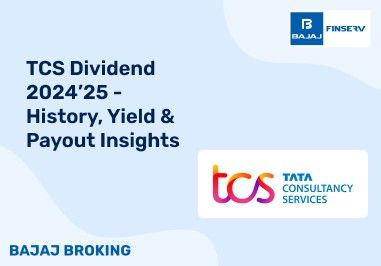BAJAJ BROKING
Ather Energy IPO is Open!
Open a Free Demat Account
Trade Now, Pay Later with up to 4x
Track Market Movers Instantly
Understanding Margin Against Shares for Trading
Synopsis:
In trading and investing, several investors are forced to stay away from certain trades due to a lack of funds. However, the margin against shares facilities may enable them to make potential trades at short notice or when funds are not available to traders.
One of the main reasons that investors stay away from trading activity is the lack or absence of funds to make trades. Sometimes, opportunities to trade may arise and investors discover they cannot get hold of funds at short notice. The result is that they miss out on potentially lucrative trading opportunities. This is when the margin against shares facility that brokers offer enters the scene. Investors can bridge shortfalls in their capital with such a service offered and can make trades that may turn out to be potentially profitable. For this very reason, investors must know that they can make the most of this service and how they can do so.
Article Highlights
The article below elucidates the following highlights about trading with a margin against shares:
- Margin Against Shares Explained
- What is Margin Against Shares? An Illustrated Example
- Pledged Stock
Margin Against Shares Explained
When you open a Demat account and a linked trading account to trade on the stock market, you have a whole world of facilities. The broker that you use (and open your accounts with) allows you to make the most of stock trading with various services on offer. The trading account opening process is not simply for buying and selling stock, but for other services you can avail of that may prove profitable. The margin against shares facility lets you borrow capital from your broker through the pledging of shares that you have in your Demat account. In case you wish to buy a stock and you lack the funds to do so, you can borrow funds from your broker to make the trade and pledge the shares in your Demat account as collateral against your borrowing. Stockbrokers that give you this service levy interest on the amount of funds lent to you. The rate of interest levied is dependent on the broker and the amount of funding you desire. The interest levied is done so daily until the loan you have taken from your broker is completely paid up.
Additional Read: What is Margin Money?
What is margin against shares? An Illustrated Example
It is important to note the amount of margin that any investor may be entitled to depends on factors such as the amount of shares you hold, the broker, etc. Nonetheless, if you are still asking yourself, “What is margin against shares?”, then the following example helps you understand the concept:
Let’s say you wish to buy 100 shares of a particular company where each share is ₹500. The total amount you would require for the full trade to take place would be ₹50,000. However, if you have only half the amount to make the trade, that is ₹25,000, you fall short of the total amount by ₹25,000. Since you do not want to miss out on the trading opportunity in question, you can borrow the shortfall amount from your broker.
So you opt for the facility of margin against shares. Now, in your Demat account, you may hold ₹1 lakh worth of stock. Your broker is prepared to lend you up to 60% of this amount to make your trades, so your shortfall can be covered by the amount of the loan. Going further, your trades turn out to be profitable and you decide to sell the shares bought on a margin and make substantial gains. You can use the proceeds to pay back the loan you took from your broker, including the interest amount. Once you have made the repayment, your broker withdraws the pledge on your stock.
Pledged Stock
If you sign up for the margin against stock facility, you may be wondering what the status of the stock you pledge will be. Once you opt to use your stock as collateral, your broker sends you a pledge request. You have to accept the request and then the funds you borrow will be credited to your account.
You will still be the owner of the shares you pledge, but you are not permitted to transfer them or sell them. For the period that the shares are pledged, due to the margin against shares facility, the broker, effectively, has a right of control over the pledged shares. Additionally, if an investor fails to make repayment on the loan, the broker has the authority to liquidate the shares that are pledged and recover the amount of the loan taken by the investor.
Additional Read: Intraday Trading
Trading On a Margin
The facility of trading on a margin is a potentially great opportunity for investors entering trades with a lack of funds. Although this facility can result in potentially profitable trades, there is also the possibility of your trades resulting in loss. Hence, while trading on a margin, should assess their financial circumstances and risk profile, and then avail of the facility.
Disclaimer: Investments in the securities market are subject to market risk, read all related documents carefully before investing.
This content is for educational purposes only. Securities quoted are exemplary and not recommendatory.
For All Disclaimers Click Here: https://bit.ly/3Tcsfuc
Share this article:
Read More Blogs
Disclaimer :
The information on this website is provided on "AS IS" basis. Bajaj Broking (BFSL) does not warrant the accuracy of the information given herein, either expressly or impliedly, for any particular purpose and expressly disclaims any warranties of merchantability or suitability for any particular purpose. While BFSL strives to ensure accuracy, it does not guarantee the completeness, reliability, or timeliness of the information. Users are advised to independently verify details and stay updated with any changes.
The information provided on this website is for general informational purposes only and is subject to change without prior notice. BFSL shall not be responsible for any consequences arising from reliance on the information provided herein and shall not be held responsible for all or any actions that may subsequently result in any loss, damage and or liability. Interest rates, fees, and charges etc., are revised from time to time, for the latest details please refer to our Pricing page.
Neither the information, nor any opinion contained in this website constitutes a solicitation or offer by BFSL or its affiliates to buy or sell any securities, futures, options or other financial instruments or provide any investment advice or service.
BFSL is acting as distributor for non-broking products/ services such as IPO, Mutual Fund, Insurance, PMS, and NPS. These are not Exchange Traded Products. For more details on risk factors, terms and conditions please read the sales brochure carefully before investing.
Investments in the securities market are subject to market risk, read all related documents carefully before investing. This content is for educational purposes only. Securities quoted are exemplary and not recommendatory.
For more disclaimer, check here : https://www.bajajbroking.in/disclaimer
Our Secure Trading Platforms
Level up your stock market experience: Download the Bajaj Broking App for effortless investing and trading













